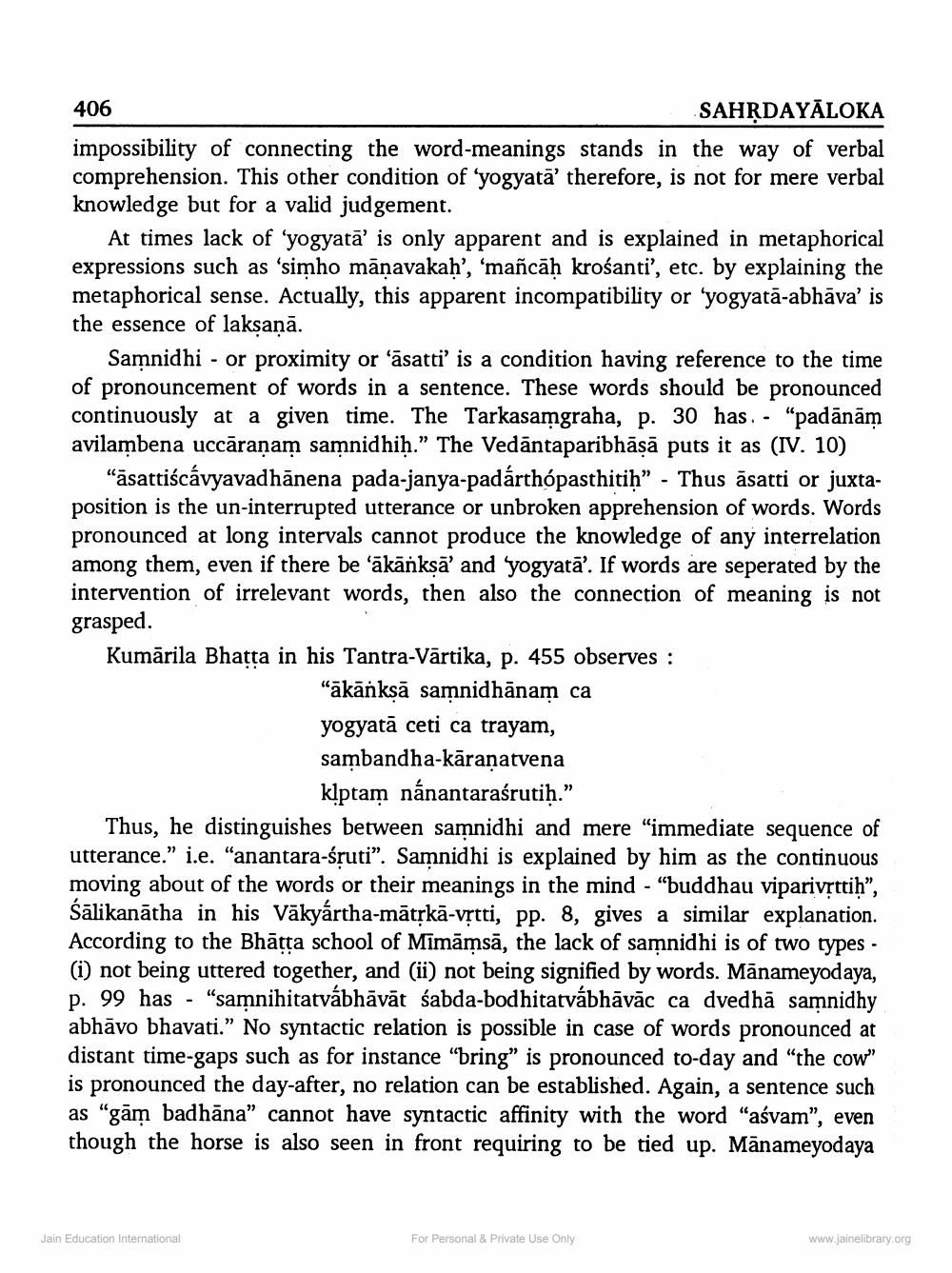________________
406
SAHRDAYĀLOKA impossibility of connecting the word-meanings stands in the way of verbal comprehension. This other condition of yogyatā' therefore, is not for mere verbal knowledge but for a valid judgement.
At times lack of 'yogyatā' is only apparent and is explained in metaphorical expressions such as 'simho māņavakaħ', 'mañcāḥ krośanti', etc. by explaining the metaphorical sense. Actually, this apparent incompatibility or 'yogyatā-abhāva' is the essence of laksaņā.
Samnidhi - or proximity or 'āsatti' is a condition having reference to the time of pronouncement of words in a sentence. These words should be pronounced continuously at a given time. The Tarkasamgraha, p. 30 has. - "padānām avilambena ucсāranam samnidhih." The Vedāntaparibhāsā puts it as (IV. 10)
"āsattiścávyavadhānena pada-janya-padárthópasthitih” - Thus āsatti or juxtaposition is the un-interrupted utterance or unbroken apprehension of words. Words pronounced at long intervals cannot produce the knowledge of any interrelation among them, even if there be 'ākāńksā' and 'yogyatā'. If words are seperated by the intervention of irrelevant words, then also the connection of meaning is not grasped. Kumārila Bhatta in his Tantra-Vārtika, p. 455 observes :
"ākānkṣā samnidhānam ca yogyatā ceti ca trayam, sambandha-kāranatvena
kļptam nánantaraśrutiḥ.” Thus, he distinguishes between samnidhi and mere "immediate sequence of utterance." i.e. “anantara-śruti”. Samnidhi is explained by him as the continuous moving about of the words or their meanings in the mind - "buddhau viparivrttih", Śālikanātha in his Vākyártha-mātņkā-vștti, pp. 8, gives a similar explanation. According to the Bhātta school of Mīmāmsā, the lack of samnidhi is of two types. (i) not being uttered together, and (ii) not being signified by words. Mānameyodaya, p. 99 has - "samnihitatvábhāvāt sabda-bodhitatvábhāvāc ca dvedhā samnidhy abhāvo bhavati." No syntactic relation is possible in case of words pronounced at distant time-gaps such as for instance "bring" is pronounced to-day and "the cow" is pronounced the day-after, no relation can be established. Again, a sentence such as "gām badhana" cannot have syntactic affinity with the word "aśvam", even though the horse is also seen in front requiring to be tied up. Mānameyodaya
Jain Education International
For Personal & Private Use Only
www.jainelibrary.org




